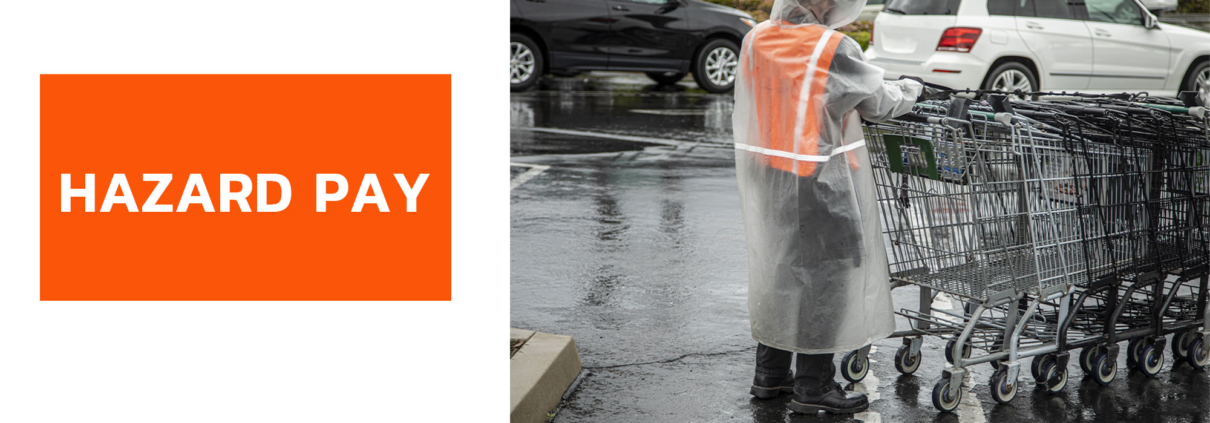Hazard Pay
Frontline and essential workers have continued working through the public health crisis, many with no additional pay. The “thank yous” and recognition they receive, serve only to mask the fact that they are forced to put themselves at significant risk or lose their jobs without the ability to file for unemployment. Their predicament is thrown into sharp relief against the background of applause. A few employers have temporarily instituted hero pay. Kroger and Amazon were paying workers an additional abysmal $2/hr and Starbucks $3/hr. All three companies additional pay initiatives will expire this month, despite the ongoing risk to workers.
This has not gone unnoticed. While democrats and republicans are divided on passing additional relief, there’s a consensus that something must be done to compensate those on the frontlines. Both sides of the aisle have put forward plans to address this inequity—but will it be enough?
Inside the democrats proposed HEROES Act, which passed the House on Friday, May 15th, is the Heroes Fund, a $200 billion initiative to introduce hazard pay for essential workers. While the bill is being called “dead on arrival” in the senate, the Heroes Fund may be a piece that survives.
The Heroes Fund
- In the HEROES Act–$200 billion
- Sliding $13/per hour raise depending on employees’ salary, totaling in $5-25k of premium pay
- Payment spread out throughout the year, and retroactively covers back to the beginning of the crisis and lasting until December 31st, 2020
- Bonus checks of up to $15k to attract essential workers
- Employers eligible for $10,000 per worker grants for essential workers that make less than $200,000/yr and $5,000 per worker for workers who make over $200,000/yr
- Benefit to family members of frontline workers who died in service
On Friday, May 1st, Mitt Romney unveiled “Patriot Pay,” his plan to address Hazard pay for essential and frontline workers. His plan differs from the Heroes Fund, in that it does not pay retroactively and lasts only 3 months, and it is funded through a payroll tax credit instead of a grant.
Patriot Pay
- Proposed by Mitt Romney
- Up to an additional $12/hr through May, June and July. A full-time worker would receive a maximum of $1,920/month for 3 months
- Funded through employers and the federal government via a payroll tax credit
The main issue with both of these proposals is defining who qualifies as an essential worker. Essential workers encompass an amount of industries that would make a $200 billion program woefully inadequate. And with states reopening, workers not deemed essential are now also exposing themselves to risk. How do we decide who deserves hazard pay when working at all is a hazard? While those on the frontlines who have been forced to continue to work since the beginning of the public health crisis should undoubtedly be prioritized, others risking their health deserve compensation as well. It has been the most underpaid, and normally unappreciated, who have been forced to bear the brunt of this pandemic, and the only way to properly and meaningfully acknowledge their compulsory sacrifice is through material and tangible compensation. Hopefully, the both parties will come together to solve this bipartisan and urgent oversight.
Read more about the Heroes Fund here.
Read more about Patriot Pay here.
For more information about companies’ discontinuations of hazard pay here.
Yours in Strength,
The Take Back Control Team




Leave a Reply
Want to join the discussion?Feel free to contribute!